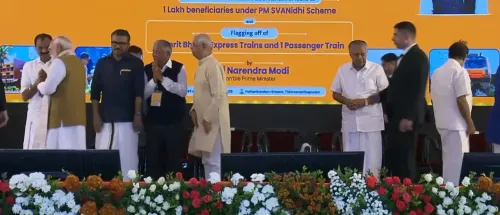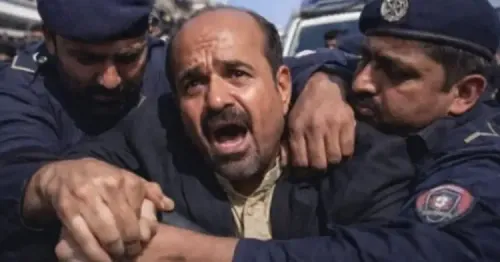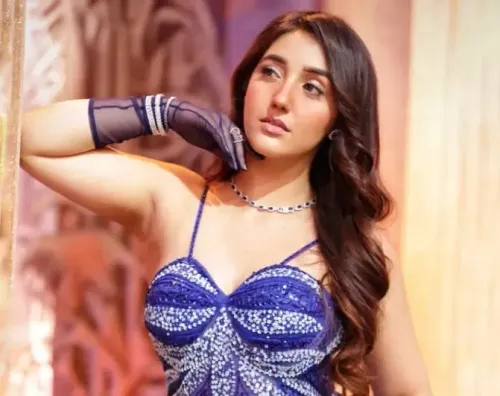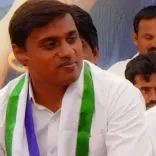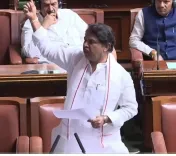What Did EAM Jaishankar Discuss with Iranian Foreign Minister?

Synopsis
Key Takeaways
- EAM S. Jaishankar discusses regional developments with Iranian FM.
- India stresses the importance of dialogue and diplomacy.
- Relations between India and Iran are rooted in historical ties.
- Significant agreements have strengthened bilateral cooperation.
- India aims to promote peace and stability in West Asia.
Rio de Janeiro, July 7 (NationPress) External Affairs Minister (EAM) S. Jaishankar met with Iranian Foreign Minister Seyed Abbas Araghchi on Sunday during the 17th BRICS Summit, where their discussions primarily revolved around recent regional developments.
"Pleased to connect with FM @araghchi of Iran this evening. Our dialogue concentrated on the ongoing regional developments," the External Affairs Minister shared on X, along with a photograph capturing their handshake.
This meeting holds significant importance, especially given the recent tensions in West Asia, particularly the Iran-Israel conflict and the US strikes on Iran. India emphasized the need for de-escalation and advocated for a return to dialogue and diplomacy to restore regional peace and stability.
India also expressed its concerns regarding security in the West Asian region.
In late June, EAM Jaishankar had previously conversed with Araghchi about the situation arising from hostilities between Iran and Israel.
The EAM also expressed gratitude to the Iranian FM for Tehran's support in evacuating Indians stranded in Iran.
India and Iran possess a rich history of interactions, with their contemporary relationship rooted in these historical ties, which continue to evolve through high-level exchanges, trade cooperation, cultural connections, and robust people-to-people engagements, as noted in an official statement.
India and Iran formalized their friendship with a treaty signed on March 15, 1950.
Former Prime Minister Atal Bihari Vajpayee's visit to Iran and the signing of the Tehran Declaration in April 2001, as well as President Seyyed Mohammad Khatami's visit and the New Delhi Declaration in 2003, further strengthened the India-Iran relationship.
A significant boost to bilateral ties came during Prime Minister Narendra Modi's visit to Iran in May 2016, where a joint statement titled “Civilizational Connect, Contemporary Context” was released, alongside the signing of 12 MOUs/Agreements, including a Trilateral Agreement on Trade, Transport and Transit involving India, Iran, and Afghanistan.
Former President Hassan Rouhani's visit to India in February 2018 also resulted in a joint statement titled “Towards Prosperity Through Greater Connectivity”.
Furthermore, Prime Minister Modi met President Masoud Pezeshkian during the 16th BRICS Summit in Kazan, Russia, in October 2024, where they discussed enhancing bilateral relations.
This marked their first engagement since President Pezeshkian took office in July 2024.
In 2024, Vice President Jagdeep Dhankhar visited Iran to attend a ceremony paying respects following the death of President Seyyed Ebrahim Raisi, alongside Foreign Minister Dr. Hossein Amir-Abdollahian and other Iranian officials.



